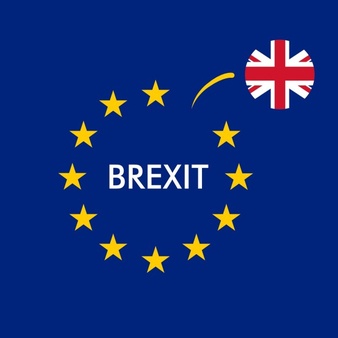On March 29, the United Kingdom began the formal process of withdrawing from the European Union, even as the EU celebrated its 60th anniversary. This process could take up to two years for negotiations to be completed. As Brexit, as it’s commonly known, becomes a reality, religious leaders in the EU are expressing their concern. There are a large number of thriving Church of England parishes in Europe; most major cities have one. British expats in Europe feel like their futures are extremely uncertain. In Gibraltar, a British overseas territory, 96% of the population voted to remain in the EU. The Bishop of Gibraltar in Europe, Dr Robert Innes, said, “Gibraltarians are some of the most vulnerable to the effects of Brexit and they are having to leave the EU almost entirely against their will. There is, therefore, an especial moral responsibility on the UK Government for their financial and social well-being over the next several years.” He added that many of his chaplains were concerned about their benefits and pensions. Bishop Innes remains committed to working with “Christians on both sides of the Channel,” saying that the Church of England had been around for longer than the EU, and that they had no intention of quitting now. “We have been here for 500 years, a lot longer than the EU. We are not about to pack up and go home.”
The Bench of Bishops in the Church in Wales called for nuanced thinking during negotiations. They pointed out that not all of the UK’s problems came from membership in the EU, but also acknowledged that that membership had possibly not benefited all British people equally. “Whilst some have benefitted [sic] from economic prosperity and the opportunities to travel, work, study and trade freely across European boundaries, for others, these things have been irrelevant.” They urged the government to focus on human rights in the UK, while also maintaining standards begun in the EU.
The Baptist, Methodist, and United Reformed Churches, with the Church of Scotland have produced resources through their Joint Public Issues Team for Christians to discuss what they hope to see in society. These resources can be found www.jointpublicissues.org.uk. They urged Christians to engage in conversation and be thoughtful about different perspectives. “The EU referendum campaign has left some mourning the loss of an important identity, while others are delighted by the opportunities that lie ahead.”
Meanwhile, the Pope spoke to the gathered leaders of the 27 member states of the EU (excepting Teresa May, prime minister of England). He encouraged them to consider all that they had accomplished (the longest period of peace for several centuries, among other things). The Union will fail, he said, if it becomes “dominated by the fear that others will wrench us from our usual habits, deprive us of familiar comforts, and somehow call into question a lifestyle that all too often consists of material prosperity alone”. The Pope condemned the recent trends of populism and isolationism that have plagued Europe and the US. He urged the leaders to stand together as they faced the crises of the influx of refugees, economic instability, and more.

